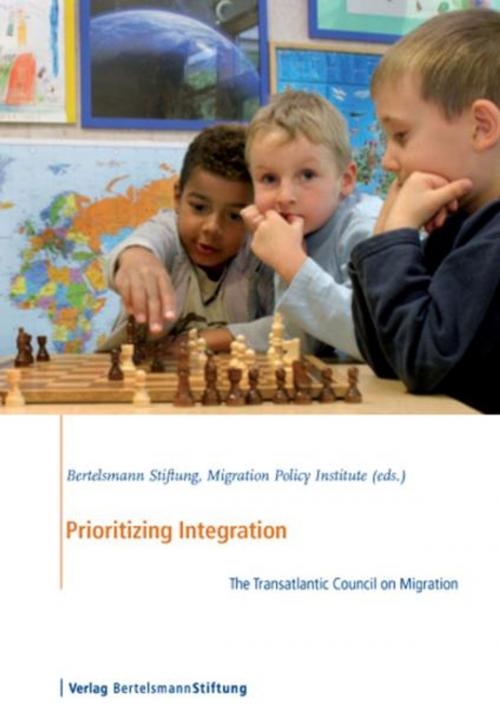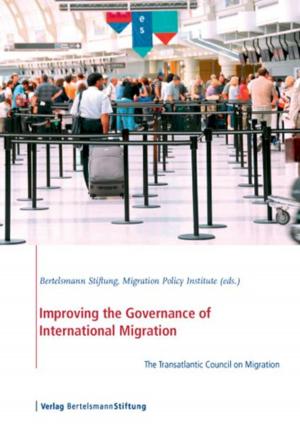Prioritizing Integration
The Transatlantic Council on Migration
Nonfiction, Reference & Language, Education & Teaching, Social & Cultural Studies, Social Science| Author: | ISBN: | 9783867933032 | |
| Publisher: | Verlag Bertelsmann Stiftung | Publication: | February 1, 2011 |
| Imprint: | Language: | English |
| Author: | |
| ISBN: | 9783867933032 |
| Publisher: | Verlag Bertelsmann Stiftung |
| Publication: | February 1, 2011 |
| Imprint: | |
| Language: | English |
The global recession is having a major impact on immigrant integration. With cuts in public budgets and a rise in anti-immigrant sentiment across the Atlantic, many governments have made short-term decisions responding to the economic crisis that will have long-term implications for immigrants and the broader society. This book takes stock of the impact of the crisis on immigrant integration in Europe and the United States. It assesses where immigrants have lost ground, using evidence such as levels of funding for educational programs, employment rates, trends toward protectionism, public opinion and levels of discrimination. This systematic look at where and how immigrants have been affected by the recession's pinch allows us to deeply examine how governments can use the recovery period as an opportunity for more meaningful and targeted investments in integration-ones that will boost economic competitiveness and improve social cohesion. The book concludes with a set of priorities for the integration-related investments national and local governments should be making in the coming decade.
The global recession is having a major impact on immigrant integration. With cuts in public budgets and a rise in anti-immigrant sentiment across the Atlantic, many governments have made short-term decisions responding to the economic crisis that will have long-term implications for immigrants and the broader society. This book takes stock of the impact of the crisis on immigrant integration in Europe and the United States. It assesses where immigrants have lost ground, using evidence such as levels of funding for educational programs, employment rates, trends toward protectionism, public opinion and levels of discrimination. This systematic look at where and how immigrants have been affected by the recession's pinch allows us to deeply examine how governments can use the recovery period as an opportunity for more meaningful and targeted investments in integration-ones that will boost economic competitiveness and improve social cohesion. The book concludes with a set of priorities for the integration-related investments national and local governments should be making in the coming decade.















